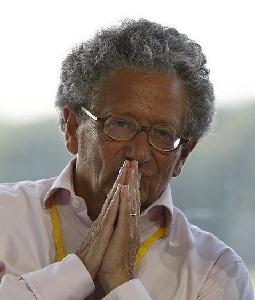Professor Moïsi, a couple of months ago, former Soviet dissident Natan Sharansky called the Arab Spring a “window of hope”, adding that “many are the forces aiming to slam it shut” (The Stakes in the Middle East). Are we now witnessing that the “Arab street” itself belongs to those destructive forces?
It is much too early to say. To understand what’s happening in the Arab world today, the best comparison is with the French Revolution. Revolutions are by essence long and messy process. It would be much too easy to say: “You see I told you, nothing good could come from these revolutions!” What has happened in Cairo is a severe warning, a reminder that Egyptians want change quickly and are expecting progress in their daily life. But of course they vent their frustrations by attacking the Israeli Embassy and burning the flag with the Star of David. The Arab Street is volatile, and let’s not declare defeat too soon. Islamist will do well in the next elections, but one should not confuse “Muslim Brothers” with Al Qaida.
We know from the United Nations’ “Arab Human Development Reports” (http://www.arab-hdr.org/) that the domestic problems of Arab countries are overwhelmingly home-made. How do you explain the explosive anti-Semitism and hatred of Israel driving parts of the “Arab street”?
The more friendly or passive Arab regimes were towards Israel – mostly to gain American favour –, the more Arab societies are hostile to Israel. They have been humiliated by their regimes and humiliated by the “distance” their regimes demonstrated towards the Palestinian cause. For these societies the clearest symbol of change – since they are disappointed by the speed of economic, social and political change – can only come in the field of foreign affairs, i.e., as far as the relations between their country and the Jewish State are concerned. Of course it would be naïve to close one’s eyes to the existence of deep anti-Semitic currents in the present Islamic culture.
What can the West, what can Israel do against these feelings of anger and hatred? Are we simply just helpless?
As far as Israel is concerned it has chosen a largely “autistic” path that has led the Jewish State towards a process of self-isolation. Of course Palestinians do bear a large responsibility for this evolution which can be described in the following manner: “Since they don’t like me, since they will never like me, i.e. accept me, why should I try to be nice with them?”. Israeli intransigence is based on a combination of pessimism and national – if not for some, religious – ideology. Of course the second Intifada was an absolute tragedy and a major mistake. A Ghandi-like revolt, a non-violent strategy would have been much more human and most probably much more efficient. But the West and Israel should remain convinced that a two state solution, whatever its huge difficulty remains, is the solution, in fact the only solution. In the long run the security of Israel rests on its legitimacy as much as on its military superiority. Some restoration of a sense of justice for the Palestinian may not be sufficient but is nevertheless absolutely necessary if one day the Arab Street will accept the existence of Israel. This scenario goes through a two state solution. On the eve of a symbolically important vote at the United Nations, all western states should ask themselves what kind of vote is best in order to reach one day an agreement on a two state solution.
Thank you very much, Dominique Moïsi.
The questions were asked by Michael Mertes.



